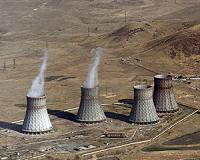 |
Johannesburg (AFP) Sept 17, 2010 South Africa is shelving the development of a cutting-edge nuclear reactor after the programme failed to find private investors or customers abroad, the government said Friday. About 9.2 billion rand (1.3 billion dollars, 985 million euros) has been poured into the Pebble Bed Modular Reactor project, with 80 percent of the money provided by the South African government. US nuclear firm Westinghouse had supported the programme but the company withdrew from the project in May, according to the ministry of public enterprises. The project could cost another 30 billion rand to make the plants a reality, while the developers had consistently missed key deadlines, the ministry added. "As a consequence, the scale and size of the company is being drastically reduced to a handful of people, with the focus being on the retention of its intellectual property, and of certain skills, and the preservation of its assets," public enterprises minister Barbara Hogan said on the ministry's website. Hogan informed parliament of the decision on Thursday, saying the programme was being placed into care and maintenance as most of the staff were laid off. South Africa had already slashed the scheme's budget dramatically this year, cutting most of the 800 jobs in the programme. The Pebble Bed Modular Reactor was developing a new type of small nuclear power plant, which could be grouped together to make bigger plants, or used individually. Excess heat generated by the plants could be diverted to industrial applications, such as extracting oil from tar sands. South Africa was one of the few countries in the world engaged in research on the technology, touted as much safer than earlier generations of nuclear plants.
earlier related report "Less than two months ago the government made an offer to Areva to take over the security of its agents," using the FDS, a combined force of police, paramilitary gendarmes and soldiers, said government spokesman Laouali Dan Dah. "It's Areva who made the choice to assure the security of its personnel, which is not the case for other (mining) operators," he added. The army was only present in Arlit to protect the strategic uranium mining sites, he added: so Areva could not therefore shift responsibility for the kidnap of its staff on to the government. French groups Areva and Vinci both confirmed on Sunday that they employed private security firms to protect their French staff -- and that they had not been armed. An Areva spokesman said that under the terms of an agreement with the Niger government, 350 gendarmes and soldiers at Arlit regularly patrolled the site where the foreign workers lived. But Dan Dah said: "If the abductors were able to operate with such ease, it's because, among other things, the security of the staff was in the hands of private agents who were not armed." The latest batch of hostages was kidnapped on Thursday from their homes in Arlit in northern Niger by suspected AQIM-linked gunmen, or Tuareg bandits who may have planned to sell them on to the Islamists. The seven are five French nationals, one Togolese and one Madagascan. All worked for French companies involved in uranium mining in the Arlit region. After initially announcing tighter security at its site in Arlit, both companies finally decided to repatriate their foreign workers.
Share This Article With Planet Earth
Related Links Nuclear Power News - Nuclear Science, Nuclear Technology Powering The World in the 21st Century at Energy-Daily.com
 MIT study upbeat on nuclear power growth
MIT study upbeat on nuclear power growthWashington (UPI) Sep 17, 2010 Nuclear power use is growing worldwide but the high costs of setting up plants, disposing of waste and worries over abuse are holding back expansion, a new study by the Massachusetts Institute of Technology said. "To enable an expansion of nuclear power, it must overcome critical challenges in cost, waste disposal and proliferation concerns while maintaining its currently excellent saf ... read more |
|
| The content herein, unless otherwise known to be public domain, are Copyright 1995-2010 - SpaceDaily. AFP and UPI Wire Stories are copyright Agence France-Presse and United Press International. ESA Portal Reports are copyright European Space Agency. All NASA sourced material is public domain. Additional copyrights may apply in whole or part to other bona fide parties. Advertising does not imply endorsement,agreement or approval of any opinions, statements or information provided by SpaceDaily on any Web page published or hosted by SpaceDaily. Privacy Statement |